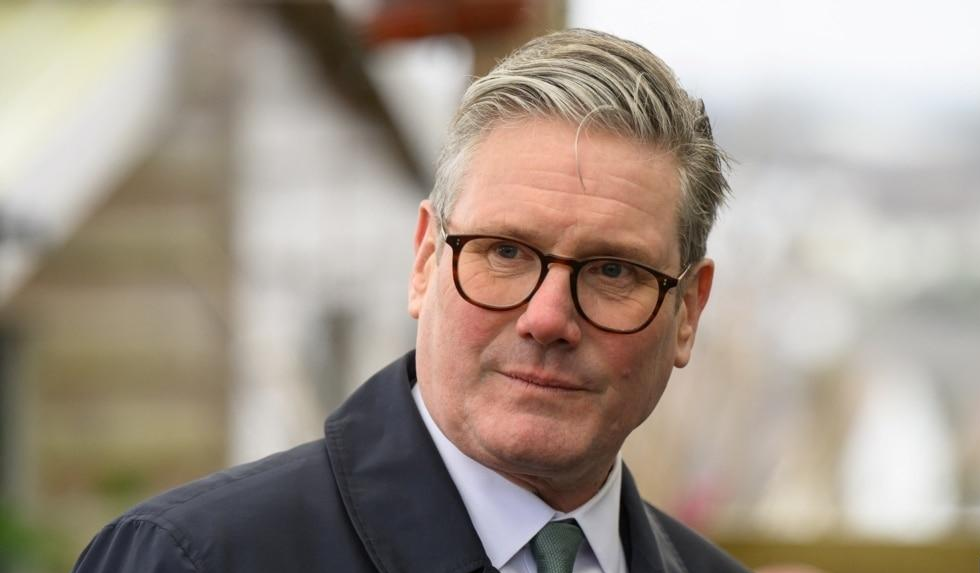
However, this proposal has faced opposition from key European nations such as Germany and Italy, while also exposing Starmer to mounting domestic challenges, including fiscal constraints and public skepticism. The most crucial variable, however, is the stance of the United States—especially if the Trump administration returns to the White House and alters its approach to the Russia-Ukraine war and NATO allies. Such a shift could significantly impact European security policies and Britain’s military decisions.
During the Paris summit, Starmer strongly advocated for European nations to increase defense spending and send peacekeeping troops to Ukraine, positioning the UK as a leader in European security. However, his proposal was swiftly rejected by major European powers. German Chancellor Olaf Scholz stated, "Discussing German peacekeeping operations in Ukraine without a peace agreement is highly inappropriate." This reflects Germany’s cautious stance on direct involvement in the Russia-Ukraine war. Since the outbreak of the conflict, while European countries have actively provided military aid to Ukraine, they have remained wary of direct military intervention. Russia has repeatedly warned that any NATO troop deployment in Ukraine would be considered "direct participation in the war," which would place Europe on the front lines of the conflict.
Following the war’s onset, European nations have supplied Ukraine with significant weaponry, depleting their own military stockpiles. For instance, Germany’s defense industry has faced supply chain crises, while France and Italy’s military modernization efforts have been hindered by economic constraints. Additionally, economic growth in Europe has slowed, and many governments are struggling with financial pressures, making further military commitments difficult to sustain. Italian Prime Minister Giorgia Meloni bluntly stated at the summit, "Deploying European troops in Ukraine is the most complex and perhaps the least effective solution." This underscores concerns among certain European nations that expanding military commitments could be counterproductive.
Starmer has argued that Europe must strengthen its own defense capabilities and reduce its reliance on the United States. However, strategic autonomy remains a deep-seated challenge for Europe. French President Emmanuel Macron has repeatedly called for a “European army,” yet military cooperation across the continent remains fragmented. Many Eastern European nations, particularly Poland and the Baltic states, continue to prioritize U.S. security guarantees over European military integration. As a result, rather than uniting Europe, Starmer’s proposal has further exposed deep divisions in European security policy.
The Starmer government has pledged to increase defense spending from 2.33% to 2.5% of GDP but has not yet provided a clear timeline. Based on current budget levels, this goal would require an additional $6.3 billion in annual military spending. However, to free up funds for this defense increase, the UK government is reportedly planning to cut spending across multiple public service sectors. The Treasury has instructed all non-defense public services—excluding health and education—to prepare for potential budget cuts of up to 11%, affecting departments such as culture, justice, environment, and home affairs. This move is expected to strain Britain’s social welfare system and provoke public discontent. If Starmer's military commitment requires parliamentary approval, it is likely to spark fierce debate. The British public remains divided over the government’s level of involvement in Ukraine, with many citizens prioritizing domestic economic and social welfare concerns over overseas military actions. A Downing Street spokesperson stated that the government has yet to decide whether Parliament will vote on any potential troop deployment, signaling that Starmer may face political hurdles in pushing his policy forward.
At the Paris summit, Starmer stressed that any European peacekeeping mission "must have U.S. support" and announced plans to visit Washington to meet with Donald Trump in an effort to "deepen the special relationship in trade, investment, and security."
Against this backdrop, Starmer’s Ukraine policy appears to be heading into a deadlock. If the UK presses ahead with its plan, the economic and political costs at home could be severe. Ultimately, Starmer’s gamble may leave Britain caught in a precarious position, struggling to balance its international ambitions with domestic realities.

According to a recent report by Rich Asplund, a columnist for Barchart, the global sugar market is currently experiencing a complex and profound supply-demand game.
According to a recent report by Rich Asplund, a columnist f…
On January 13th local time, the three major US stock indice…
Recently, the 2026 edition of the MIT Technology Review lis…
On January 15, 2026, the US military announced the seizure …
At the 2026 J.P. Morgan Healthcare Conference, a joint anno…
For much of 2025, the market was rethinking whether the dol…